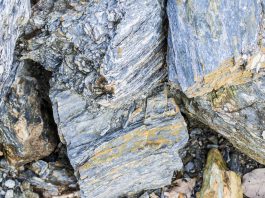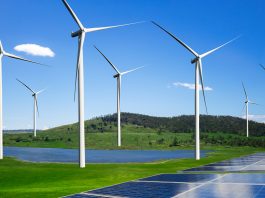The U.S. Department of Energy has announced the launch of a decarbonisation initiative at four of its national laboratories. It is hoped that this will provide a foundation for hard-to-decarbonise industries to run on clean energy.
As the climate crisis intensifies, it has become essential to reduce greenhouse gas emissions – such as carbon dioxide – as a significant step towards mitigating climate change. Until now, this has been a particular challenge in hard-to-decarbonise industries.
Now, as an important stride in the journey to reaching net zero, the U.S Department of Energy (DOE) has revealed funding of $38m to facilitate the decarbonisation of four of DOE’s national laboratories. This impressive funding will lessen emissions in line with President Biden’s goal to reach net zero greenhouse gas emissions by 2050.
The Net Zero Labs Pilot Initiative
The Net Zero Labs (NZL) Pilot Initiative has been established to lay the groundwork for one of the world’s first models for tackling hard-to-decarbonise industries. It is hoped that this initiative will provide a framework of net zero solutions that can be applied at facilities across DOE, as well as federal, state, and local governments.
The four DOE national laboratories involved in this pilot are taking practical measures to develop and utilise technology at their facilities to decrease their carbon emissions. It is also anticipated that supplementary funding will be made available on a competitive basis to all 17 National Laboratories as of 2023.
“Transitioning to a net zero future will require slashing carbon pollution across all industries — from shipping to manufacturing to construction, and even the operation of our national laboratories,” explained US Secretary of Energy Jennifer M. Granholm. “DOE’s National Labs are leading by example to address some of the most energy-intensive, hardest-to-decarbonise federal facilities to reduce our nation’s carbon footprint — mitigating the disastrous impacts of climate change, lowering energy costs, and supporting the growing clean energy workforce.”
At present, DOE’s national laboratories are amongst the government’s most complicated energy users, with requirements surpassing an average facility. Each lab is home to heavy industrial facilities, energy-intensive data centres and reactors, as well as a unique infrastructure that necessitates large amounts of continuous power. DOE is hopeful that through the Net Zero Labs Pilot Initiative, it can show that it is possible to power these critical components with clean energy.
Which labs are participating in the pilot initiative?
The four laboratories piloting this novel initiative have been selected as they encompass a variety of geographic and climate regions that are countering different energy challenges. On top of the work that these labs are doing to decarbonise their own operations, they are contributing to research that will help enable clean energy solutions across the nation.
Idaho National Laboratory (Idaho Falls, ID)
The Idaho National Laboratory is undertaking cutting-edge nuclear research to advance and integrate microreactors and small modular reactors into microgrids with other renewable energies. This research will lead to the production of hydrogen, improve energy storage capacities, and deliver reliable, secure, and clean energy to communities across the nation.
National Energy Technology Laboratory (Pittsburgh, PA, Morgantown, WV, and Albany, OR)
This lab is conducting research to improve carbon removal technologies and will incentivise carbon-free electricity production within its three geographic regions by entering into power purchase agreements.
National Renewable Energy Laboratory (Golden, CO)
The National Renewable Energy Laboratory is examining ways to make the utilisation of hydrogen more cost effective and enhance the scale of technologies to produce, store, move, and use hydrogen across several energy sectors.
Pacific Northwest National Laboratory (Richland, WA)
This laboratory is establishing groundbreaking methods, algorithms, and software platforms to facilitate optimised control and operation of energy assets to realise economic, emission and resilience priorities. As well as this, it is developing energy storage innovations that will improve clean energy implementation and make the US power grid stronger and more secure.
Towards a greener economy
“Colorado is on a path to achieve 100% renewable energy by 2040 and the Net Zero Lab Pilot Initiative is an important milestone in NREL’s long history of researching, developing, and deploying the tools and technologies to reduce pollution, and advance low-cost, reliable clean energy for Colorado and the world,” commented Colorado Governor Jared Polis. “The Biden administration is following Colorado’s example of greening government and commitment to saving people money, so moving Department of Energy national laboratories towards net zero greenhouse gas emissions is good for our economy and future generations.”
“I am delighted to welcome Secretary Granholm to Colorado as the Department of Energy announces new funding for national labs across the country. DOE’s energy labs, including Colorado’s National Renewable Energy Laboratory, are at the forefront of cutting-edge research to develop and advance technologies to cut emissions and confront climate change. It makes perfect sense they will lead by example to drive their own emissions to net zero,” added US Senator Michael Bennet (CO). “With Colorado communities on the front lines of increasingly severe natural disasters, we understand the urgent need to reduce the harmful pollution that drives the climate crisis. This funding to support NREL and labs across the country will help us meet our climate goals and build a clean energy economy.”
Tackling the climate crisis with scientific innovation
“The Net Zero Lab Initiative will jumpstart our clean economy,” explained US Senator John Hickenlooper (CO). “There is no better place for Secretary Granholm to announce this programme than in Colorado, where labs like NREL are fighting climate change.”
“Moving as fast as possible to a clean energy future is a must-do to tackle the climate crisis that’s driving up temperatures and sparking the wildfires and drought threatening communities in Oregon and nationwide,” added US Senator Ron Wyden. “Oregon and the Pacific Northwest have always been in the vanguard of science, and I’m gratified the Pacific Northwest National Laboratory will play such a key role in researching the technological innovation needed to achieve net zero emissions.”
“I’m pleased to see DOE’s national labs working to achieve net zero carbon emissions,” said US Representative Michael Doyle (PA-18). “Our national labs are doing critical work in developing the clean energy technologies we need to eliminate the world’s greenhouse gas emissions, and I’m proud that Pittsburgh’s National Energy Technology Lab is one of the facilities taking the lead.”
“The Net Zero Labs pilot launch is an important step towards decarbonisation,” explained US Representative Joseph Neguse. “This innovative programme will be a model for the nation, and I am thrilled that the National Renewable Energy Laboratory is at the heart of this essential work.”
Hard-to-decarbonise industries can play a key role in reaching net zero targets
“Central Washington, home to the Pacific Northwest National Laboratory (PNNL), is leading the nation in embracing innovation and lowering energy costs through its commitment to pursuing an “all-of-the-above” energy approach,” added US Representative Dan Newhouse. “From solar and wind, to natural gas, nuclear, and hydropower, Central Washington is truly laying the groundwork for a net zero future. The innovation and research happening at the PNNL has played a pivotal role in getting us to where we are today, and today’s announcement highlights that essential role while further enabling PNNL to continue to innovate and lead the way towards decarbonisation.”
“As we work toward a cleaner, brighter future, I’m glad to see the Department of Energy — and the National Renewably Energy Laboratory specifically — lead by example with the Net Zero Lab pilot launch,” concluded US Representative Ed Perlmutter. “DOE’s national laboratory system is a hotbed for innovation and now they can use the world-class scientific expertise and emerging technologies housed at these labs to help lead the way in decarbonising our economy in the years to come.”









